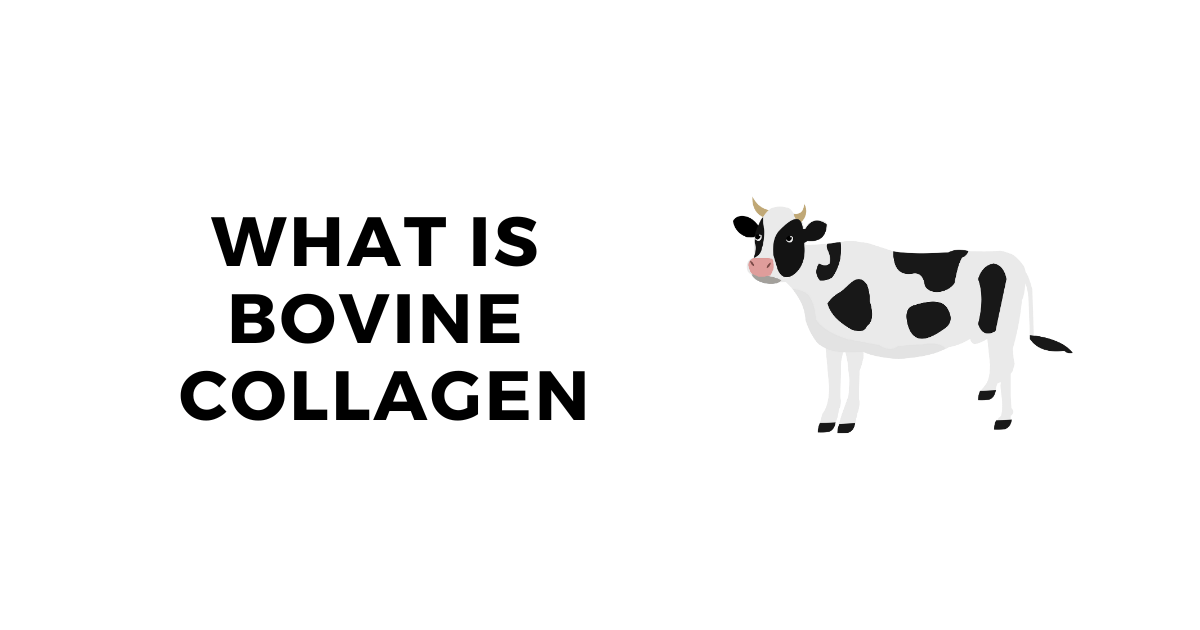
What is Bovine Collagen? Benefits, Types, Forms and Sources
Bovine Collagen Benefits
In that article you'll learn exactly what is bovine collagen, where does it come from, how is it made and most importantly, what are the benefits and are there risks? Time to dig deep!
Side note: when I first learned about , I started off with marine collagen, all excited about luscious hair and strong nails. But let me tell you, it was like sipping on a fishy smoothie. Not exactly what I had in mind.
Not one to give up easily, I switched gears and tried chicken collagen. Chicken seemed inoffensive enough. But my stomach had a different opinion. It started acting up, causing all sorts of discomfort.
Luckily, my next try was bovine collagen. And guess what? It was a game-changer! No fishy taste, no stomach troubles. It was all gorgeous locks and younger skin from there.
I wanted to learn more about this bovine collagen that worked wonders for me.
In that article you'll learn exactly what bovine collagen is, where does it come from, how is it made and most importantly, what are the benefits and are there risks? Time to dig deep!
What is Bovine Collagen
Bovine collagen comes from cows, which is why it's called "bovine." And incase you don't know already, collagen is a protein that is naturally found in your body, especially in your skin, bones and tendons.
You might be wondering, what's so great about bovine collagen? Well, there are lots of bovine collagen benefits. It can make your skin look smoother and more youthful. It can also support your joints and make them feel less achy or painful.

Bovine collagen is often available as a supplement, which means you can take it in the form of pills, powders or drinks. It is rich in type I and type III collagen, which are the types found in human skin and connective tissues.
What are the benefits of using bovine collagen?
A Review of the Effects of Collagen Treatment in Clinical Studies published in 2021 in the National Library of Medicine found that the main benefits of bovine collagen are skin rejuvenation, bone healing, gut health and joint pain reduction (1).
Here are the benefits in more detail.
1. Can help improve the appearance and texture of the skin
Bovine collagen has properties that can make your skin smoother and firmer. In fact, when you use it, it can help support the structure of your skin, making it look tighter and more youthful.
Those pesky wrinkles and fine lines can make your skin look older. Bovine collagen can reduce their appearance by boosting the collagen levels in your skin, making it more elastic and plump and reducing signs of aging.
Dryness can make your skin look dull and rough. Bovine collagen can help improve your skin's hydration by locking in moisture. This can make your skin look more radiant and feel smoother to the touch.
Lastly, it can improve the elasticity of your skin, making it more resilient and able to bounce back, giving it a tighter and more lifted appearance (1).
Speaking of which, if you're looking for a recommendation, read my review of the best collagen supplements for skin health.
2. Osteoarthritis and joint pain
When you have osteoarthritis, the cartilage in your joints is damaged, which causes pain and stiffness. Bovine collagen provides important building blocks that help keep your cartilage healthy.
This type of collagen may help reduce joint pain by giving your joints the support they need. It can also help reduce inflammation, which is another cause of joint pain. This means you feel less pain and move more easily.
Osteoarthritis can make your joints feel stiff and limit your movement. The cool thing is that it can make your joints more flexible and supple. This means you can do activities with less discomfort and enjoy better mobility.
Researchers credit the unique blend of amino acids and peptides (glycine, proline) that may stimulate the production of new collagen and other connective tissues in the body.
That means it may actually heal damage, not just hide symptoms... and a 24 week randomized controlled trial showed exactly that. Participants saw improvements in joint pain by taking 10 grams collagen daily (2).
Read more about collagen for joints.
3. May improve digestion, reduce bloating and improve gut health
Using bovine collagen can help you improve your digestion, reduce bloating and make your gut healthier. It has specific amino acids, such as glycine, proline and glutamine that help make your gut stronger and healthier.
You see, when you take this type, it can help your body break down food better and absorb important nutrients, which makes digestion easier.
Bloating can occur due poor digestion, inflammation or imbalances in gut bacteria. Collagen may help reduce bloating by calming down any irritation in your gut and helping food move through your digestive system smoothly. This can make your stomach feel more comfortable and look less swollen.
Your gut lining protects your stomach and helps with digestion. Bovine collagen has specific building blocks that support the strength of this lining.
This is thanks to the amino acid profile, particularly glycine and glutamine, which can support gut healing and repair.
By taking bovine collagen, you can make your gut lining stronger and healthier, which means your gut can work better overall.
Different types and forms of bovine collagen
The different forms of bovine collagen are hydrolysate, collagen peptides, gelatin and beef bone broth. I'll go through each of these below.
1. Collagen Hydrolysate
Collagen hydrolysate is a kind of bovine collagen that has been broken down into smaller pieces to make it easier for your body to use in a process called Hydrolysis.
Hydrolysis involves breaking down the large collagen molecules into smaller peptides or amino acids, resulting in a more easily digestible and absorbable form of collagen.

The nice thing is that it comes in a powder form that you can mix into your favorite foods and drinks without changing the taste too much.
Back in the early days of collagen, the products tasted awful and bubbled when you tried to mix them. I bought a few of the brands that were around back then... and they were all awful.
That is because they were not hydrolyzed or agglomerated. Nowadays, the products are much better and don't have much of a taste.
It typically has a neutral taste and odor, making it great for adding to smoothies, coffee, soups, or baked goods without significantly altering the flavor.
Collagen hydrolysate is full of important amino acids, including glycine, proline, hydroxyproline and arginine, that help support your skin, joints, bones and tendons.
2. Collagen Peptides
Collagen peptides are made by taking collagen from cows and breaking it down into smaller pieces or peptides. These peptides are easier for your body to absorb and use. Collagen peptides support your skin health, joint health and even your hair and nails.
You might be wondering how you can use collagen peptides. Well, they often come in powder form, so you can mix them into different things.
For example, you can add them to your morning smoothie, a glass of water, or even your favorite snacks. They don't really have a taste, so you won't even notice them. I typically add it to a glass of juice of coffee.
Collagen peptides are similar to hydrolyzed collagen, but not quite as processed. They can help support your skin, joints and other parts of your body.
3. Gelatin
Processing through heat turns collagen into a gel-like substance, which is why it's called gelatin. You might have seen gelatin before in foods like Jello or gummy candies.
Gelatin has some interesting properties. When it's mixed with water and heated, it turns into a thick, jelly-like substance. This is why it's often used in desserts and other food products to give them a gel-like texture. Gelatin can also help thicken soups, stabilize sauces and even some medications.
It's important to note that gelatin doesn't have the same benefits as collagen peptides. While collagen peptides can be easily absorbed by our bodies, gelatin doesn't dissolve as easily and is not as readily absorbed.
Gelatin is mainly used for its unique texture and thickening properties in foods. However, if you’re trying to increase collagen intake and enjoy gelatin treats, dig in! Your body will likely absorb some collagen.
4. Beef Bone Broth
Bone broth is made by simmering beef bones in water for a long time, usually several hours or even days. This simmering process extract the collagen from the bones, along with other nutrients and flavors. The result is a flavorful and nutritious liquid known as beef bone broth.
Beef bone broth is rich in collagen because the bones contain a lot of it. When you consume bone broth, the collagen can provide some benefits to our bodies. It can help support joint health by providing important building blocks for our joints. It may also contribute to healthy skin, hair and nails.
In addition to collagen, beef bone broth has other nutrients like amino acids, vitamins and minerals that are good for our overall health. These nutrients can support our immune system, help with digestion and promote general well-being.
You can enjoy beef bone broth on its own as a warm and comforting drink, or you can use it as a base for soups, stews and other recipes. It adds a rich and savory flavor to dishes while also providing potential health benefits.
What is the difference between Bovine Collagen and other collagen sources?
Bovine collagen, as the name suggests, comes from cows. However, collagen can also be sourced from other animals, such as fish, chicken or pigs. While all collagen sources share similarities, there are some differences worth noting:
- Source: Bovine collagen is derived from cowhide or bones, whereas fish collagen comes from fish skin and scales. Chicken collagen is obtained from the cartilage and bones of chickens and porcine collagen is sourced from pigskin. The specific source affects the composition and characteristics of the collagen.
- Type of Collagen: Collagen is made up of different types, with type I, II and III being the most common. Bovine collagen is primarily type I and type III, which are known for providing structural support to the skin, bones and tendons. Fish collagen is also mainly type I. Chicken collagen, on the other hand, has type II collagen, which is found in cartilage and can be beneficial for joint health.
- Absorption and Bioavailability: The bioavailability and absorption of collagen can vary depending on the source. Bovine and fish are generally well-absorbed by the body and have good bioavailability. Chicken collagen, particularly type II collagen, may have specific benefits for joint health due to its compatibility with the body's own cartilage.
- Taste and Odor: Different collagen sources can have distinct tastes and smells. Bovine collagen, for example, might have a slightly meaty taste and odor. Fish collagen may have a marine flavor, while chicken collagen is generally milder in taste and smell.
What is the best source of Bovine Collagen?
The best source of bovine collagen is one that meets the following criteria:
- Is derived from cows that have been grass-fed and pasture-raised. These animals tend to have a more natural diet and healthier lifestyles, which can contribute to the quality of the collagen they produce.
- Choosing bovine collagen that is non-GMO verified can ensure that the collagen is free from synthetic chemicals and genetically modified ingredients, which some people prefer to avoid. Look for the badge on the package. I would recommend organic, but there is no certified organic collagen in the USA at the moment. Only bone broth.
- Consider collagen products that prioritize sustainability in their sourcing practices. This means supporting brands that prioritize ethical and responsible sourcing of bovine collagen, taking care to ensure the welfare of the animals and the environment.
- Look for bovine collagen that undergoes high-quality processing methods. This can include processes that preserve the integrity and bioavailability of the collagen, such as enzymatic or hydrolyzed methods that break down the collagen into smaller, more easily absorbable peptides.
- Opt for bovine collagen from reputable and trusted brands that prioritize transparency, quality control and testing. Look for third-party certifications (informed choice, NSF) or testing that ensures the collagen meets quality standards and is free from contaminants.
Looking for a supplement recommendation? Read my guide to finding the best collagen powder.
It's important to note that individual preferences and specific health goals can influence what may be considered the "best" source of bovine collagen.
You may prioritize factors like taste, texture or additional ingredients like added vitamins or minerals. Ultimately, finding a trusted brand that aligns with your values and meets your specific needs is key when choosing the best source for you.
Are there any side effects associated with taking Bovine Collagen?
When you take bovine collagen supplements, there are generally no serious side effects to worry about. However, like any dietary supplement, there are a few things you should keep in mind:
- Allergic Reactions: It's possible that you might have allergies or sensitivities to beef or other ingredients found in collagen supplements. If you know you have a beef or animal product allergy, it's important to be cautious and talk to a healthcare professional before trying bovine collagen.
- Digestive Issues: Since collagen supplements are made up of protein, they can sometimes cause digestive discomfort, such as bloating, gas or an upset stomach. If you experience any of these symptoms, you might need to adjust your dosage or try a different form of collagen supplement.
- Interactions with Medications: While bovine collagen supplements are generally safe, they could interact with certain medications you might be taking. To be on the safe side, it's a good idea to check with your healthcare provider before starting collagen supplementation if you're taking any medications or if you have any existing health conditions.
Read the full list of downsides of collagen.
Should you look for Grass Fed Bovine Collagen?
If you're considering bovine collagen, you might be wondering if it's important to look for the grass-fed variety. Well, here's some information to help you make a decision.
Grass-fed bovine collagen comes from cows that have been raised on a natural diet of grass and pasture. Some people believe that this type of collagen is better because the cows have had a healthier lifestyle. They argue that the collagen from these cows might be of higher quality and contain more beneficial nutrients.
Choosing grass-fed bovine collagen is a personal choice. Technically all cows are grass fed for a portion of their life, so any brand could make the claim.
But you are placing trust in a brand that they are really sourcing the right way and not cutting corners. Make sure to do your research before trusting some brand with a slick Amazon page.
Look for third party verification and country of origin to figure out the quality. Many brands source from Argentina and Brazil. While these might be fine products, they are also difficult to verify the sourcing of.
It's important to note that grass-fed bovine collagen might be pricier than non-grass-fed options. So, if you decide to go for it, consider your budget and what matters most to you.
Ultimately, whether you choose grass-fed bovine collagen or not is up to you. If it aligns with your values and you can afford it, then it might be worth exploring.
Remember, the most important thing is to find a reputable brand that meets your quality standards and delivers the benefits you're looking for.
Why is bovine collagen the most common in supplements?
Bovine collagen is widely available and easily sourced. Cows are commonly raised for meat and their collagen can be extracted from their hides or bones. This makes bovine collagen more accessible for supplement manufacturers, resulting in its prevalence in the market.
Also, beef collagen is full of type I and type III collagen, which are the most abundant types found in our bodies. These types of collagen provide essential structural support to our skin, bones and tendons. By supplementing with beef collagen, you can target these areas and potentially support their health.
Moreover, bovine collagen is known for its versatility. It can be hydrolyzed, meaning broken down into smaller peptide molecules, making it easier for your body to absorb and utilize. This makes bovine collagen supplements more effective in delivering the desired benefits to you.
Lastly, bovine collagen has a relatively neutral taste and odor, making it easier to incorporate into various supplement forms, such as powders, capsules, or even added to foods and beverages.
What's the difference between marine and bovine collagen?
Marine collagen, as the name suggests, comes from fish and marine sources, such as fish skin and scales. On the other hand, bovine collagen is derived from cows, specifically their hides or bones.
One of the main differences between marine collagen and bovine collagen is the type of collagen they predominantly contain. Marine collagen is primarily composed of type I collagen, which is known for providing structural support to the skin, bones and tendons.
Bovine collagen, on the other hand, consists of both type I and type III collagen, which have similar structural functions.
Another difference is the bioavailability or absorption rate of these collagens. Marine collagen is believed to have a smaller molecular size, making it more easily absorbed by your body compared to bovine collagen.
This enhanced bioavailability means that marine collagen may be more readily utilized by your body to support your skin, joints and other tissues. Marine collagen must be processed at lower temperatures than bovine collagen, according to a study published in 2017 in Science Direct (3)
Taste and odor can also differ between marine and bovine collagen. Some people find that marine collagen tastes fishier.
I can take down almost any food, and I find marine collagen to be outright gross. I can't even mask it in a smoothie. So take that for what it's worth.
Bovine collagen, on the other hand, has a pretty neutral taste, depending on the brand of course. You can also get flavored versions if that is your thing.
Lastly, personal preferences and dietary considerations can play a role in choosing between marine and bovine collagen. If you follow a specific dietary lifestyle, such as pescatarianism or vegetarianism, marine collagen might be a preferred option for you.
Closing Thoughts
Whether you’re looking to improve your skin, digestion or joint health, bovine collagen is a powerful supplement with a long list of potential benefits.
To get the most out of this supplement, be sure to choose a high-quality product from a brand you can trust. And if you are looking for a delicious alternative, I would recommend a high protein bone broth like the one from Bluebird Provisions.
Have you tried beef collagen? Did you like it compared to other types? Leave a comment and let me know.
Source
- https://www.ncbi.nlm.nih.gov/pmc/articles/PMC8620403/
- https://pubmed.ncbi.nlm.nih.gov/18416885/
- https://www.sciencedirect.com/science/article/pii/S0928493116315697

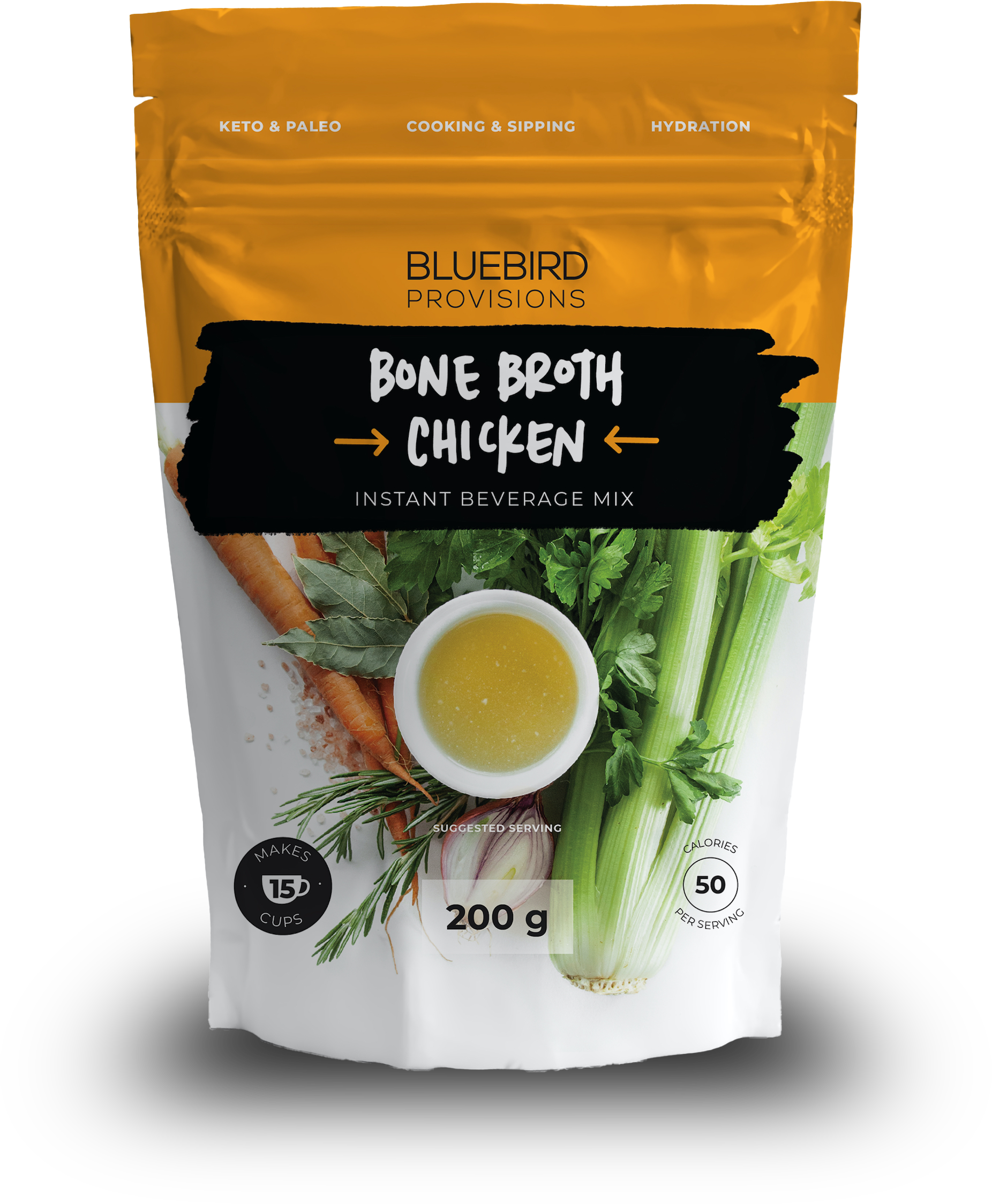
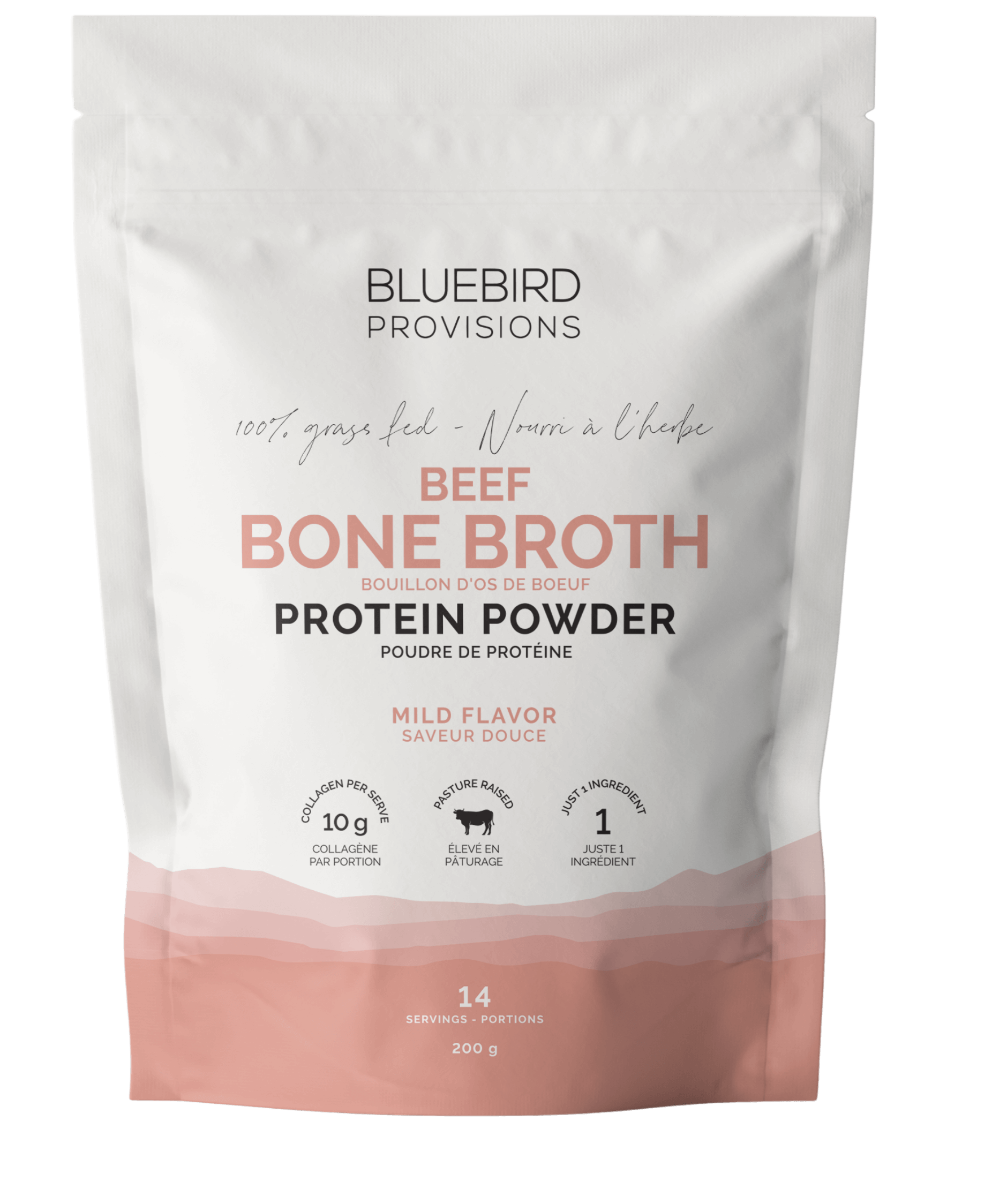
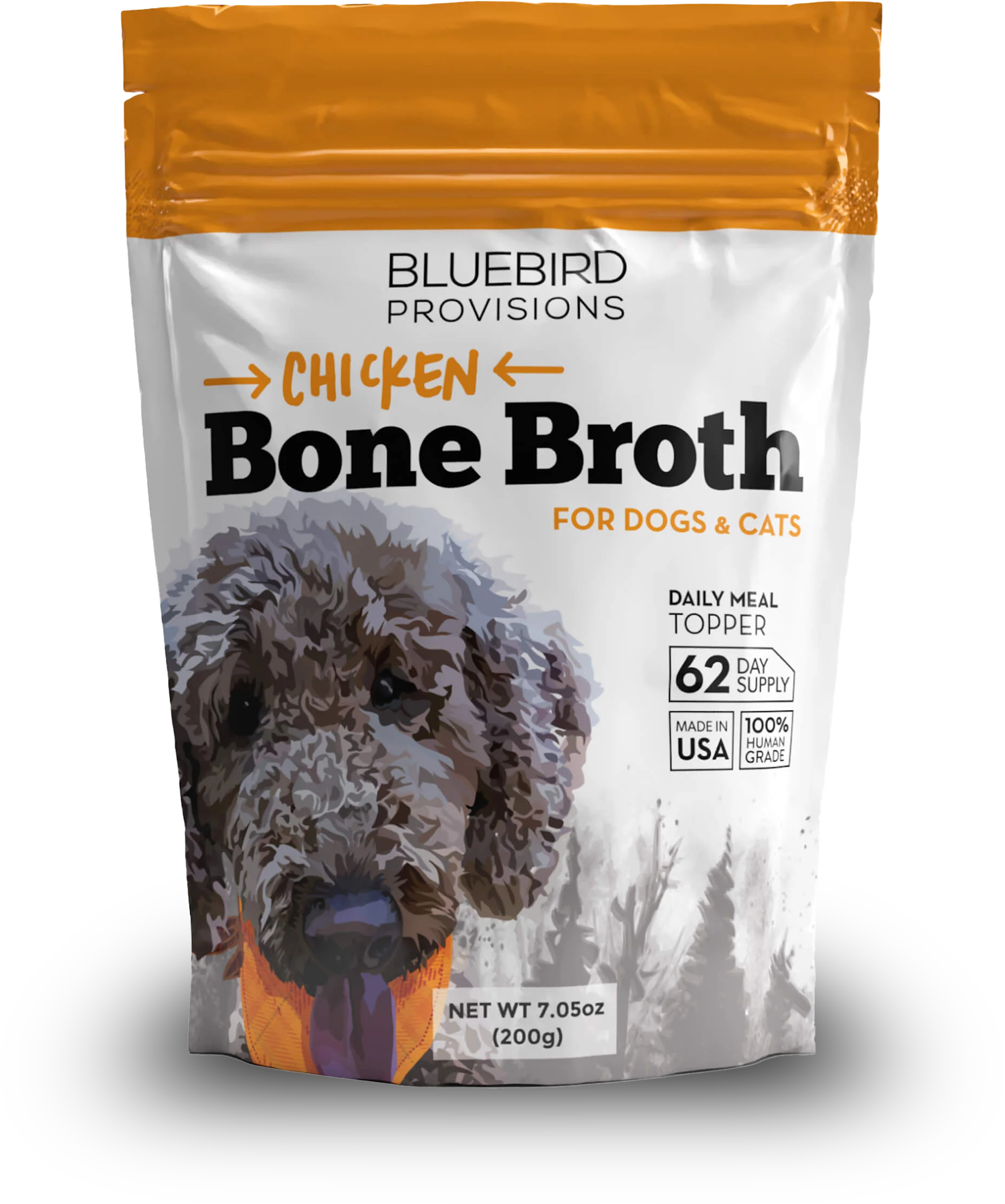
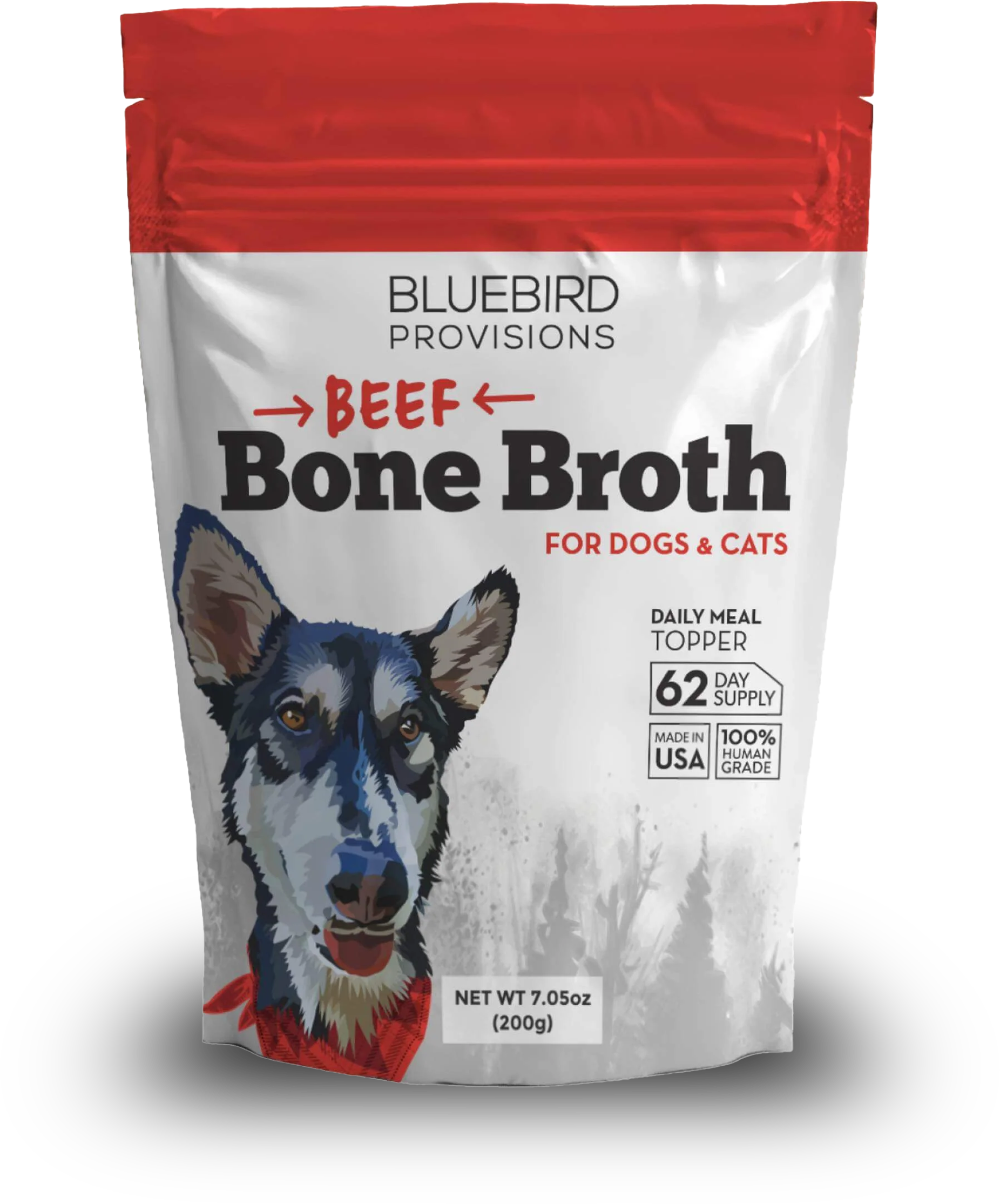
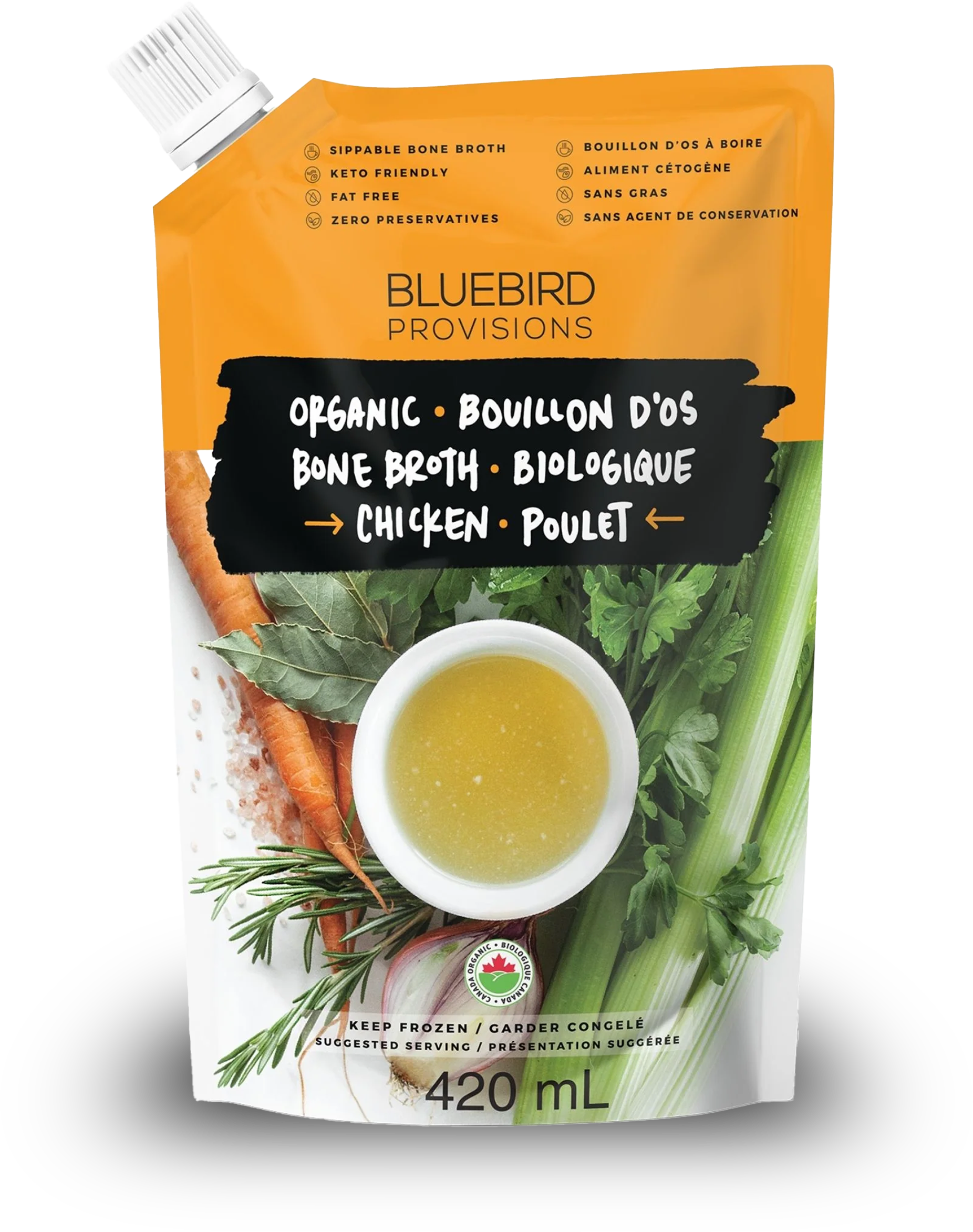
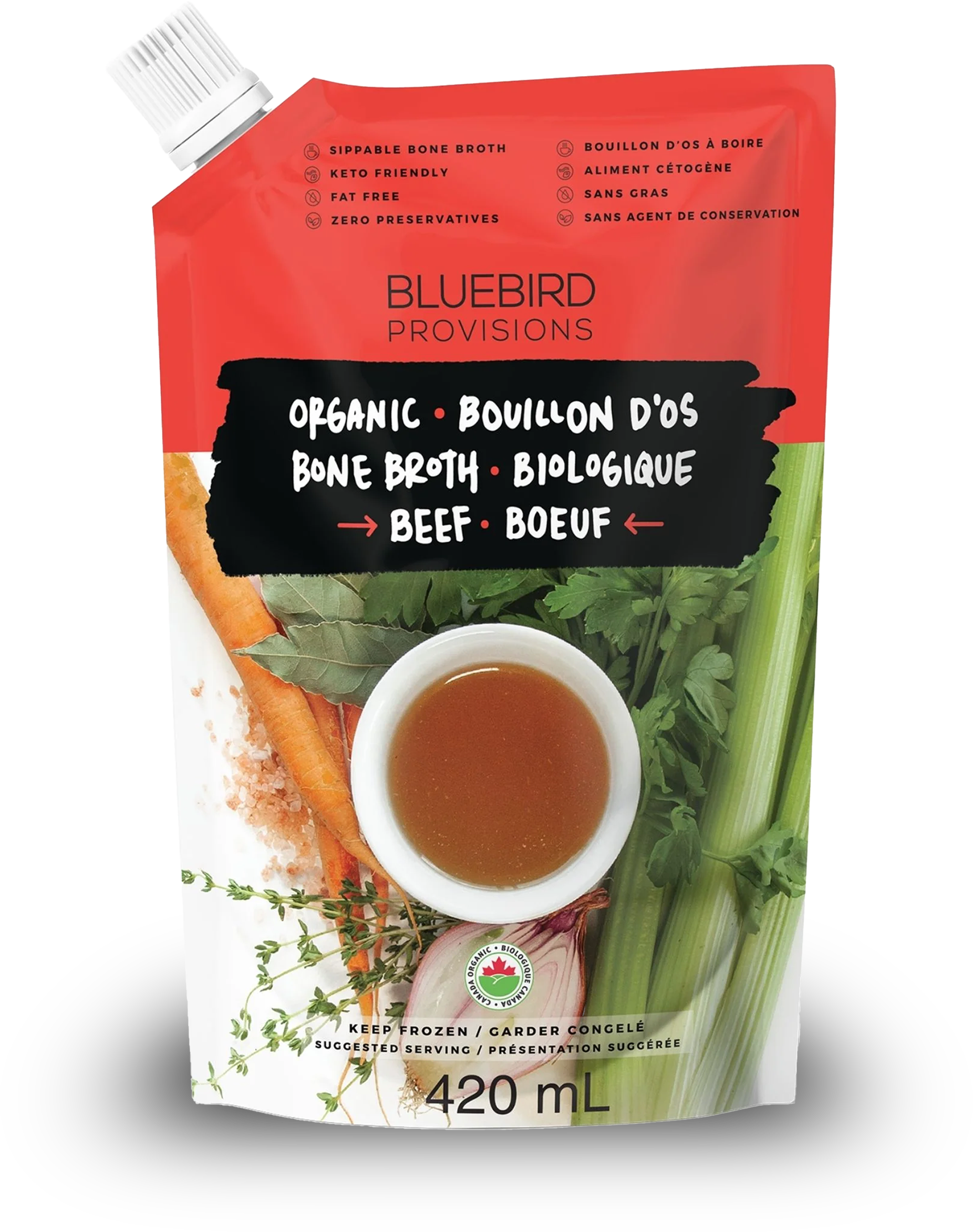

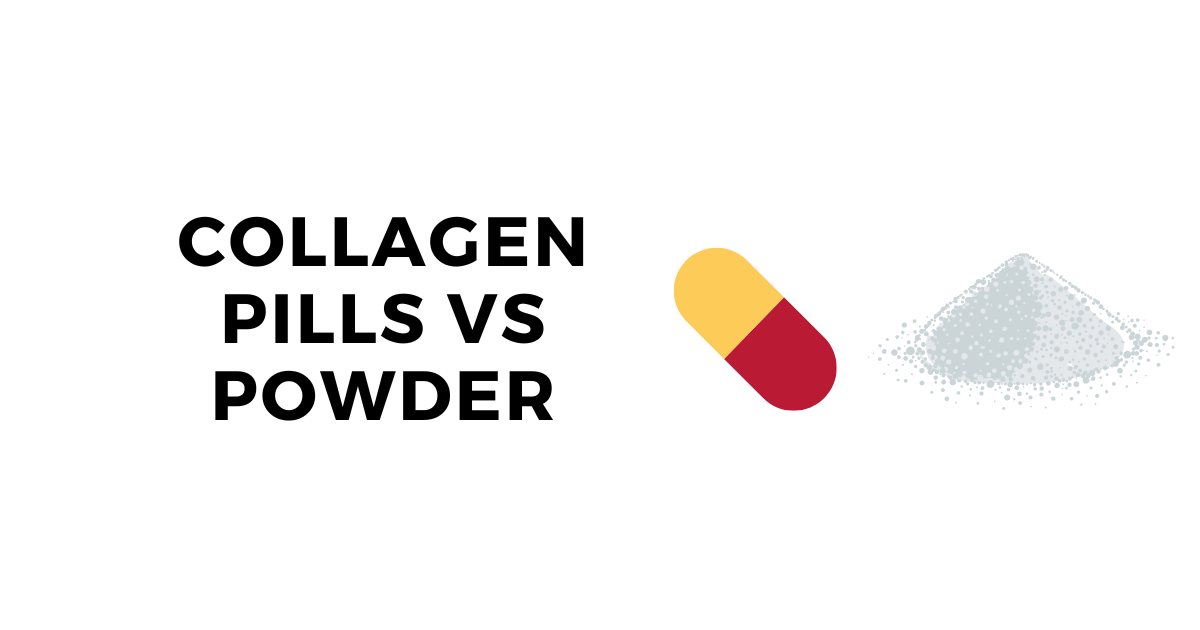
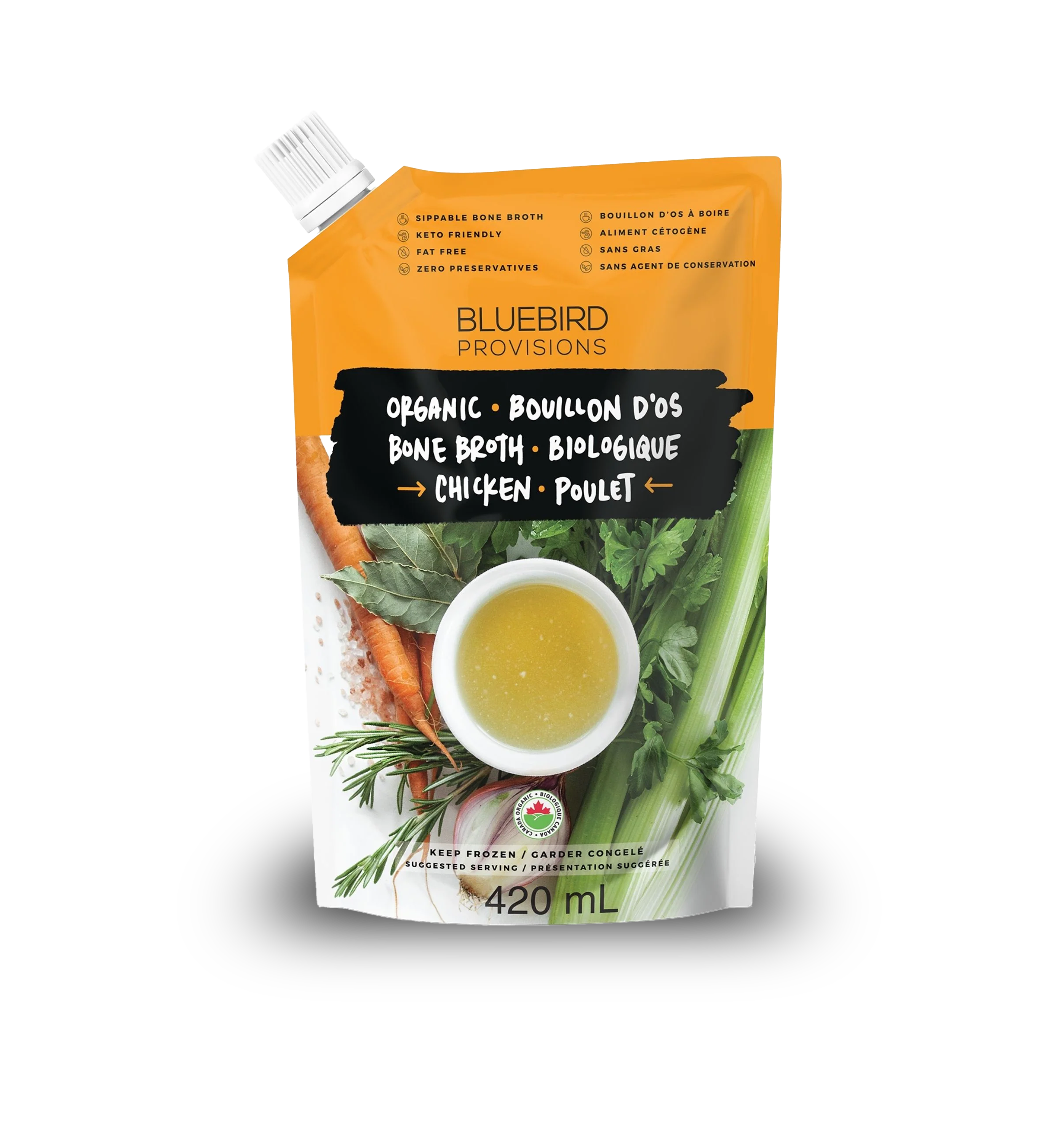
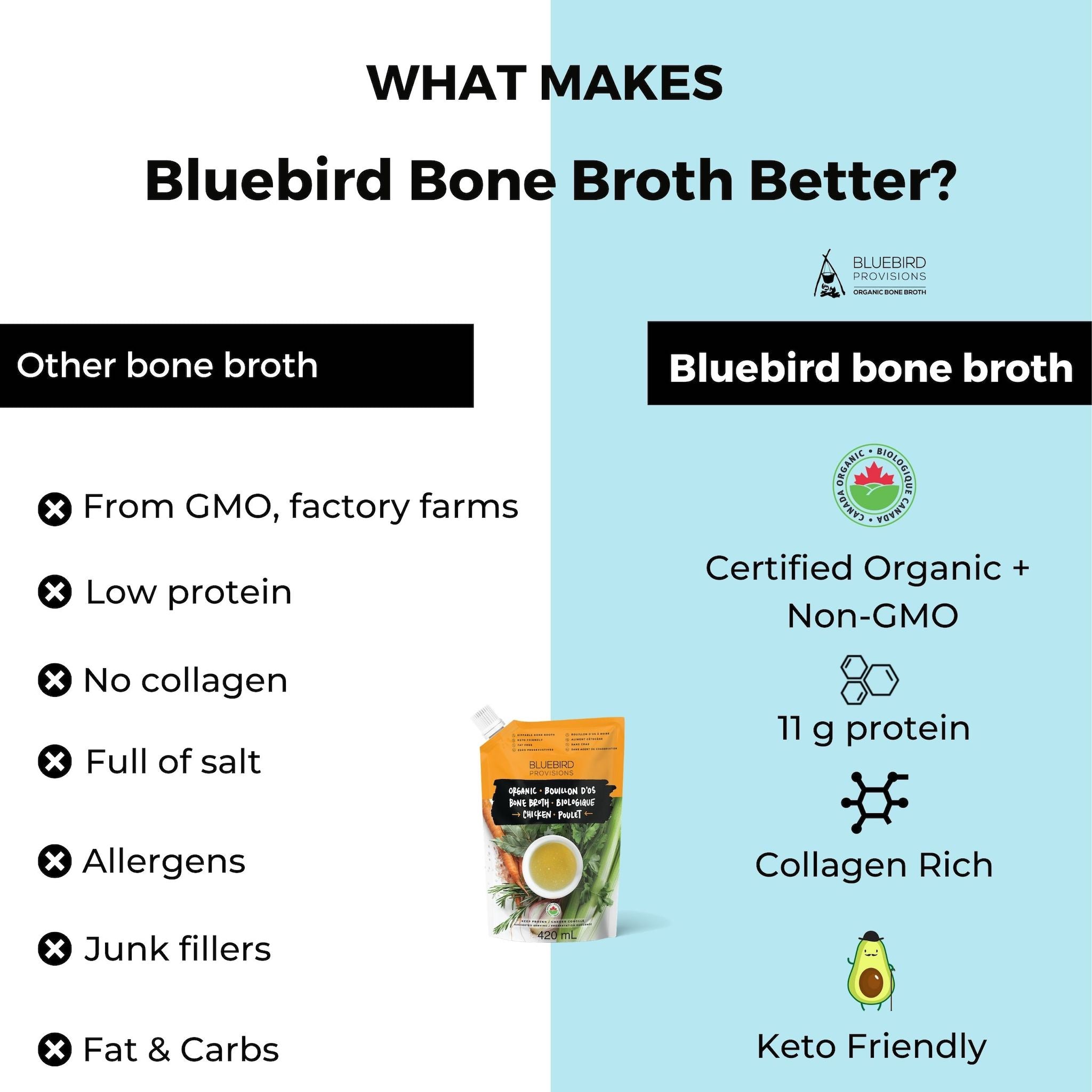
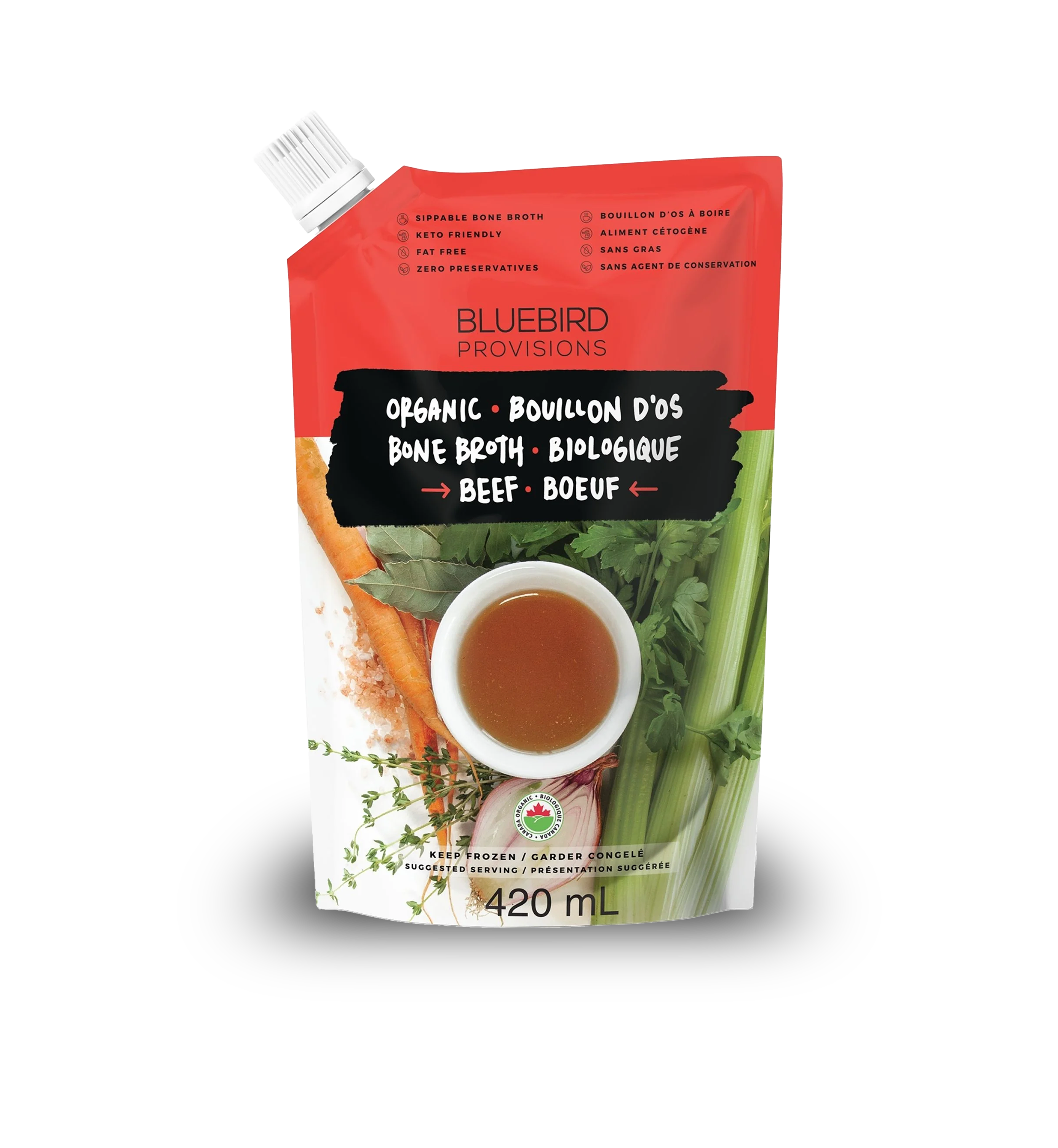
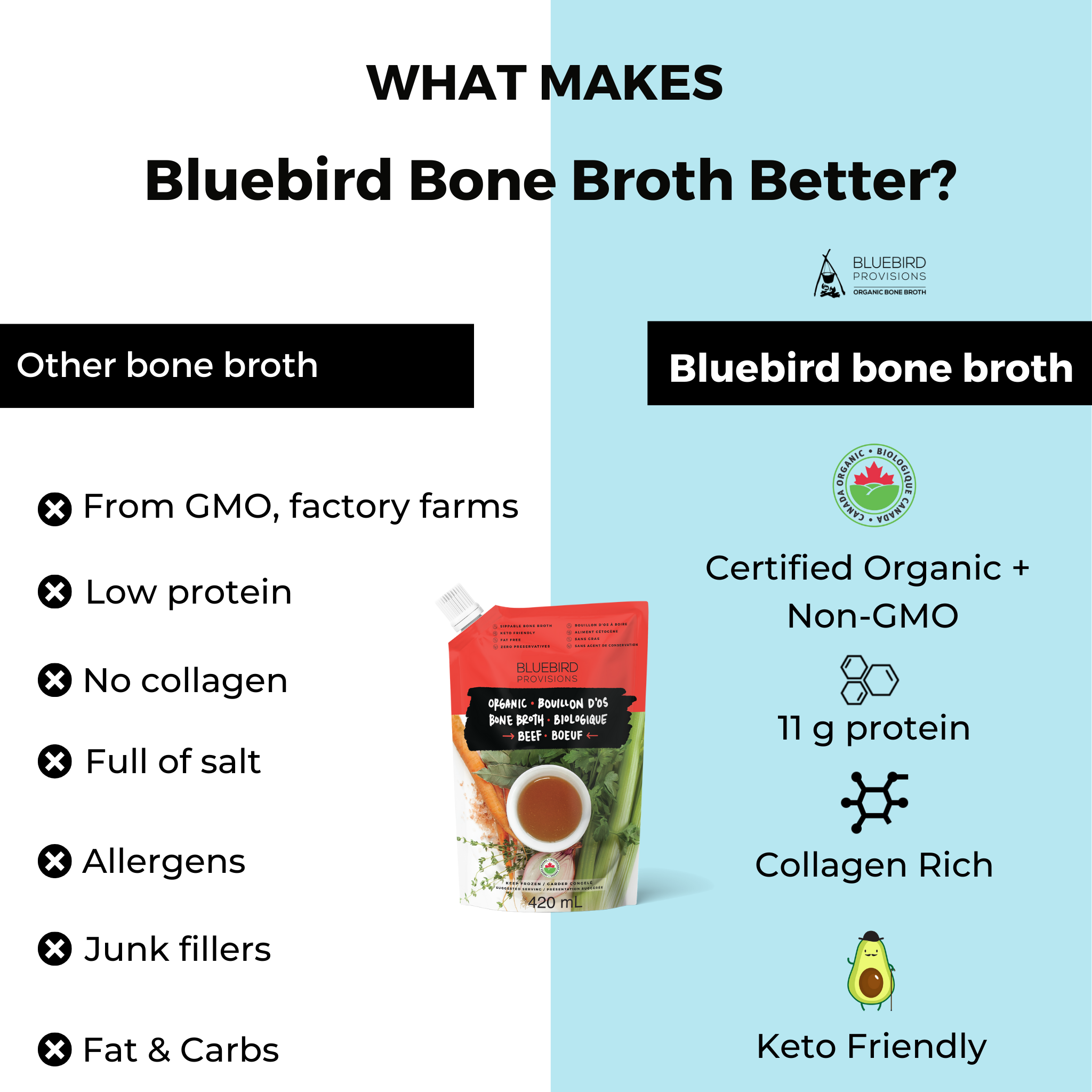
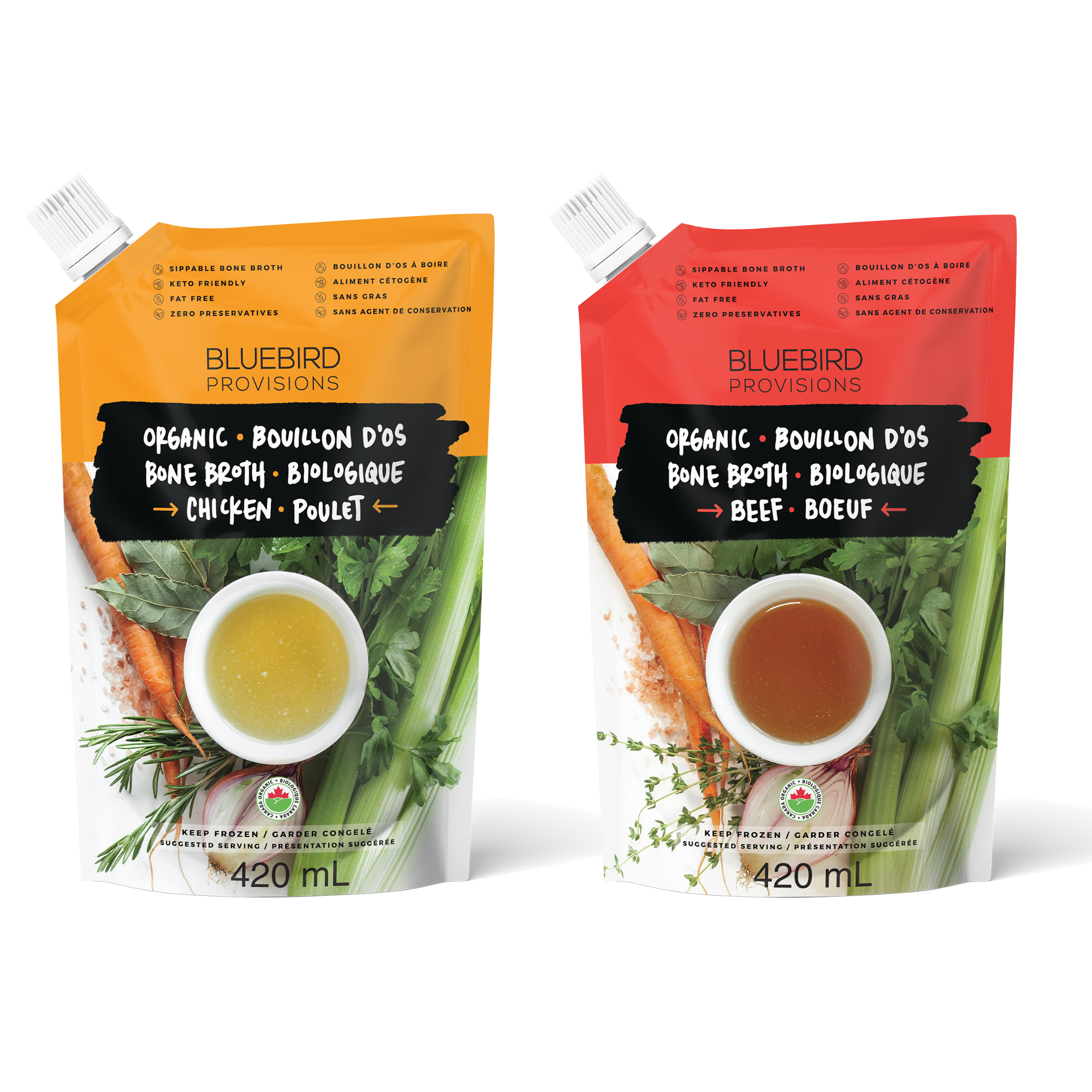

Leave a comment
This site is protected by hCaptcha and the hCaptcha Privacy Policy and Terms of Service apply.